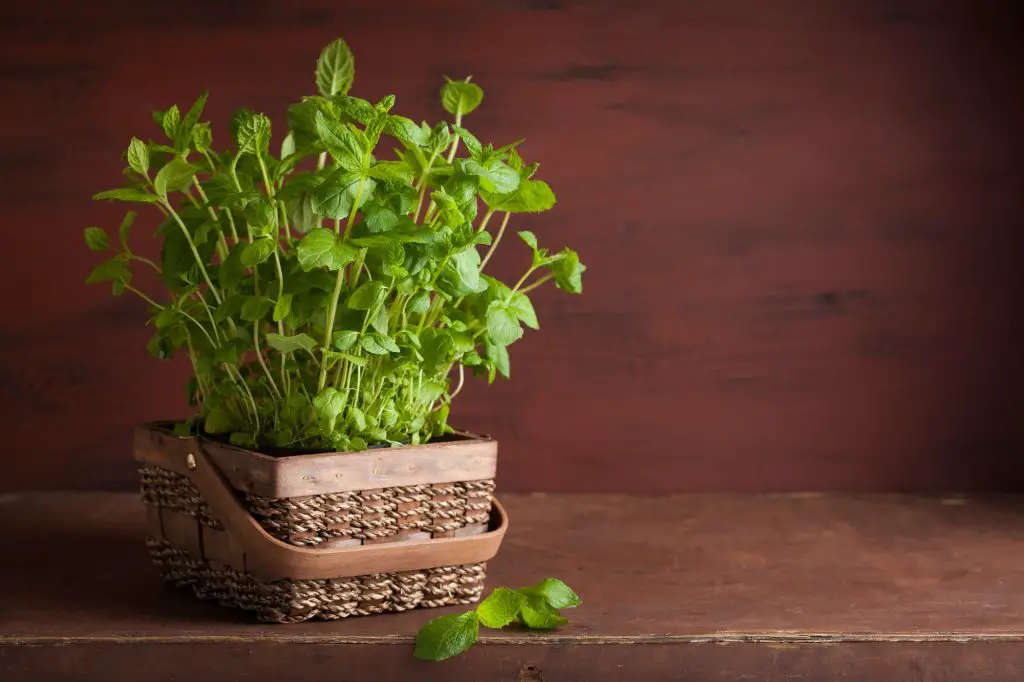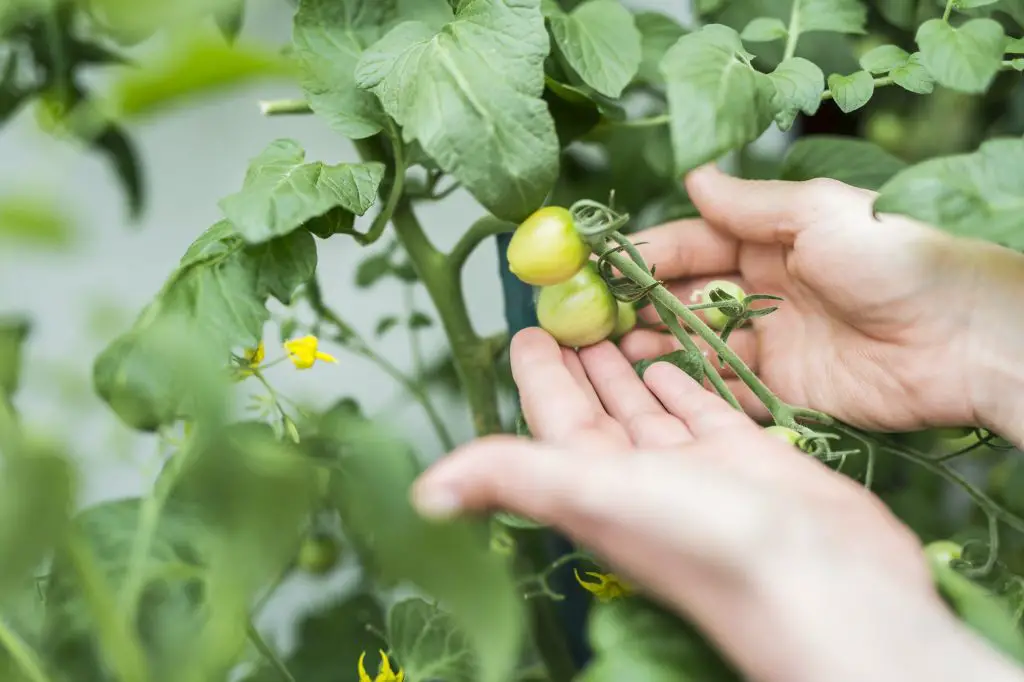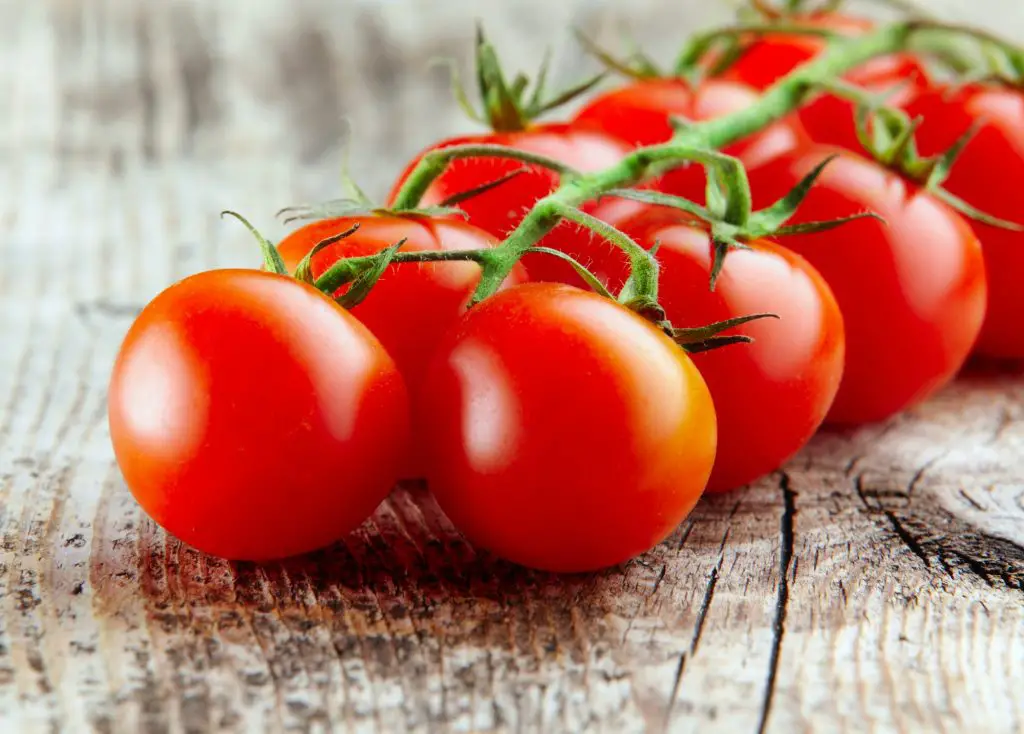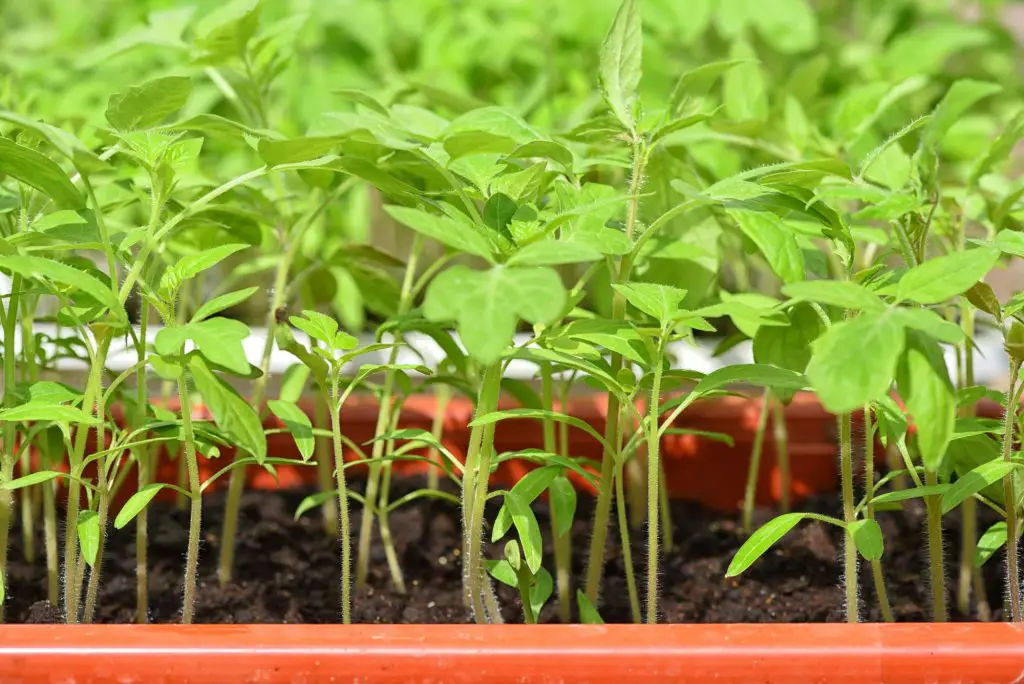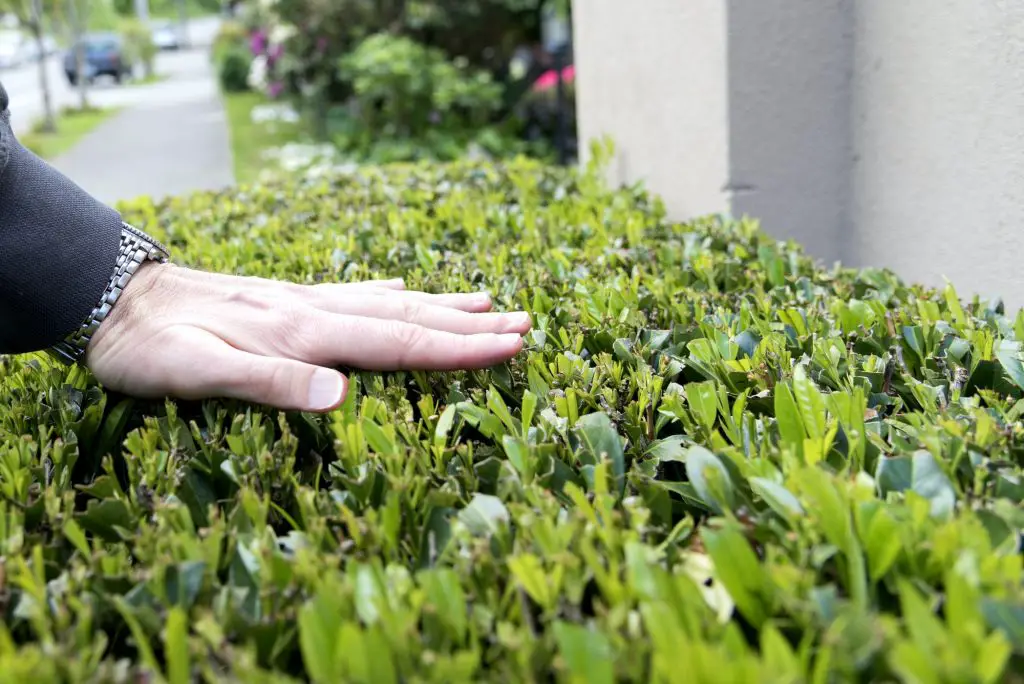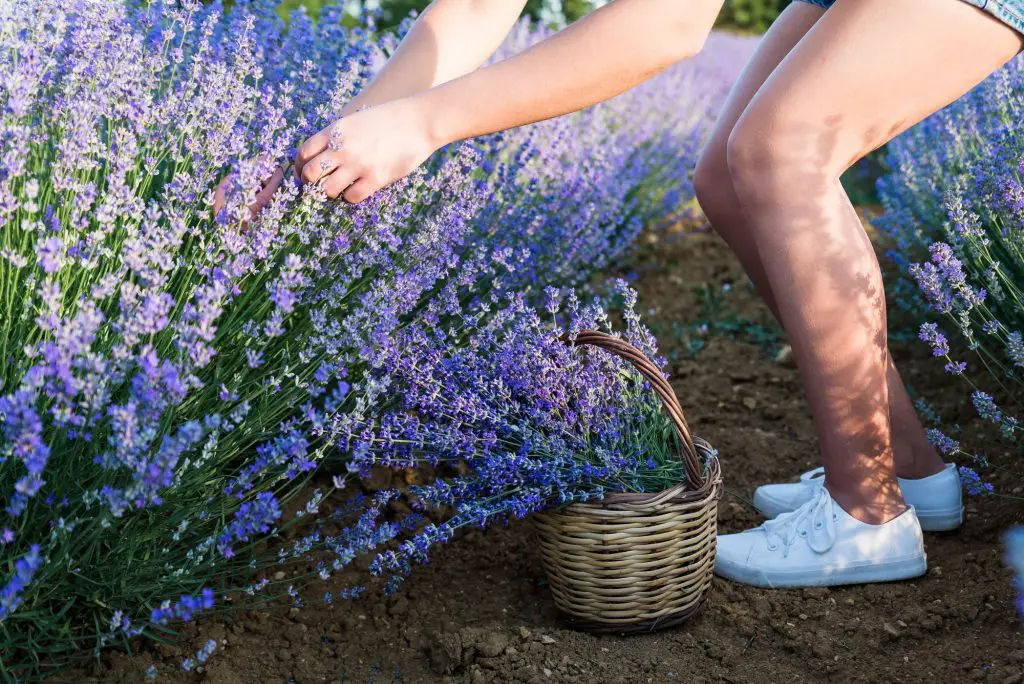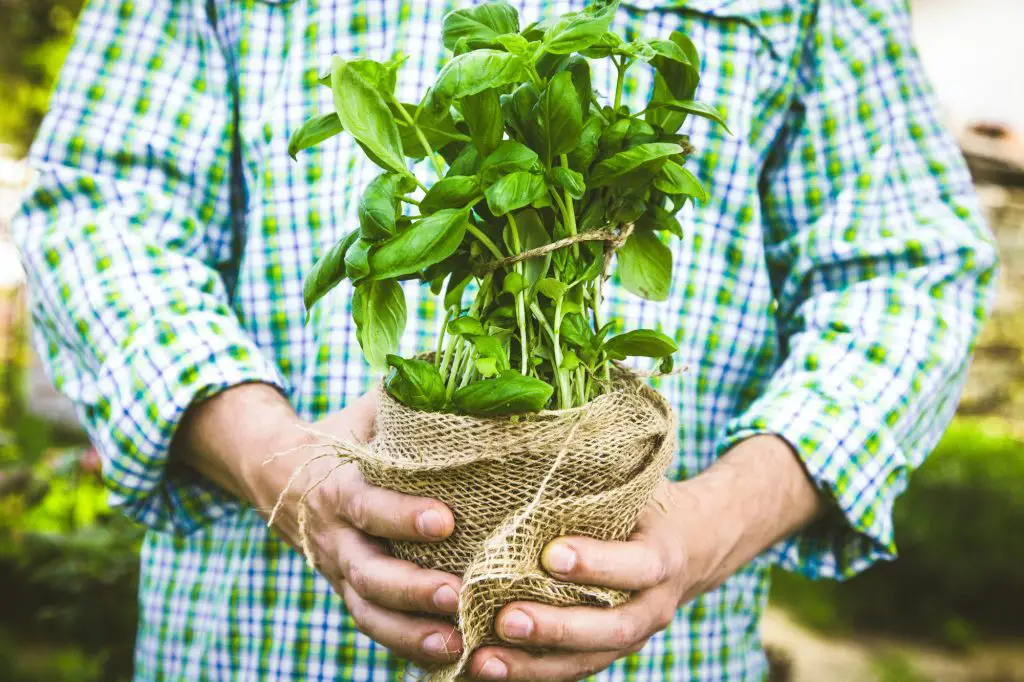One important element to the growth of all vegetables is the sun. All vegetables require a level of the sun to have healthy growth, if not full, then partial sun. Some vegetables prefer partial sun. Some prefer full sun, while some are tolerant of both.
This, however, affects the vegetables, there is always a smaller yield in the partial sun than when it is planted in full sun. In the hottest time of the year, some vegetables that do well in full sun are better places in partial sun, to protect from the scorching sun.
You may begin to wonder, what are full sun and partial shade, and what are the differences?
Table of Contents
Differences between the partial sun and full sun
- Full sun: This means direct access to 6-8 hours of sunlight daily. Some vegetables that are labelled “full sun vegetables” require this amount of sunlight, some even require up to 10 hours of sunlight daily. Vegetables like these should be places where they can get this, or they may not grow properly.
- Partial sun: Usually, a lot of people confuse partial shade and partial sun. These are not the same, partial sun generally means access to 3-6 hours of direct sunlight daily. A partial sun vegetable cannot get about these hours of sunlight or it may die.
10 Vegetables That Do Not Require Full Sun to Thrive
| Herbs That Don’t Need Full Sun | Herbs That Require Full Sun |
|---|---|
| 1. Broccoli | 1. Okra |
| 2. Mustard Green | 2. Tomato |
| 3. Peas | 3. Pumpkin |
| 4. Spinach | 4. Eggplant |
| 5. Turnip | 5. Cucumber |
| 6. Garlic | 6. Corn |
| 7. Radish | 7. Watermelon |
| 8. Chives | 8. Pepper |
| 9. Mint | 9. Sweet potato |
| 10. Sorrel | 10. Strawberry |
1. Broccoli
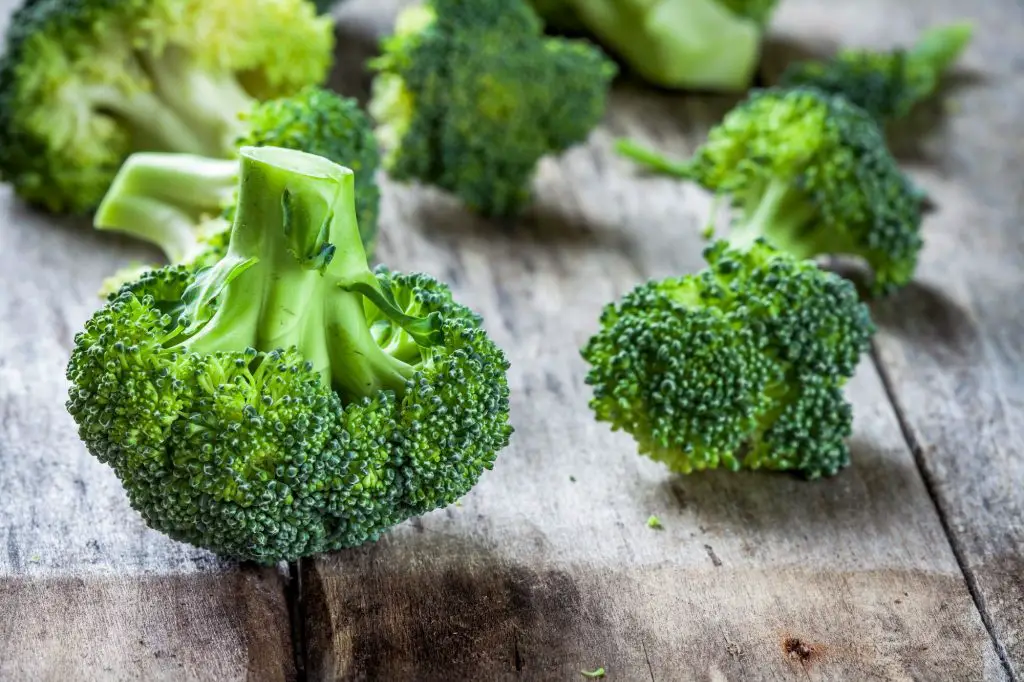
Broccoli is a partial sun tolerant vegetable. It is part of the cabbage family and has the same care routine with cabbage and members of its family. It grows best in full sun but also grows well in partial sun, this is especially in places with hot weather. Partial sun for broccoli makes flowering slower and tightens the head. Broccoli grows well in soil with rich organic matter and water.
2. Mustard Green
The mustard green is rich in Fibre, iron, and a whole lot of vitamins, they are related to Kale and sometimes called “the next Kale” although best grown in full sun, the mustard green can be raised in partial sun with as low as 3 hours sunlight daily, they, however, tend to have slower growth rate.
An advantage of raising mustard green in the partial sun is that its production tends to be sweeter and less tough. They are easy to grow and care for.
3. Peas
Peas are very similar to beans, they are best grown in the full sun, however, they are one of the most shade-tolerant vegetables. They are easy to grow and care for. They can be grown in a container or anywhere you deem fit. You don’t have to worry about space with Peas because they do not take a lot of space. They also do well with companion planting. They are likely to produce more edible seeds in the partial sun than in the full sun.
4. Spinach
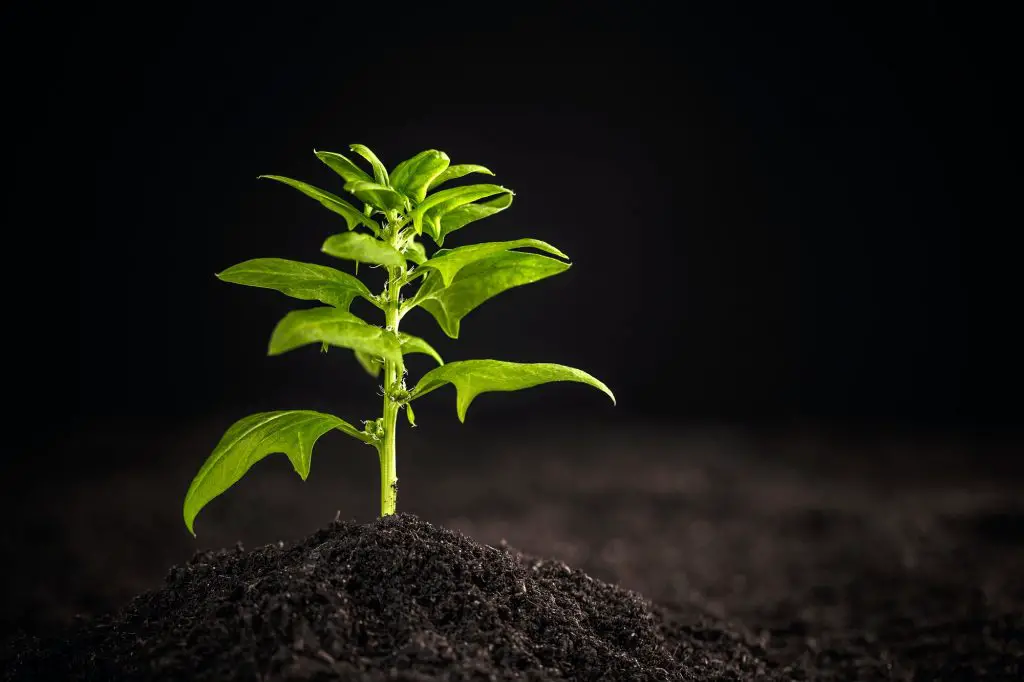
Spinach is a vegetable known for its culinary uses, it can be eaten fresh or cooked. Spinach is full of vitamins, minerals, and antioxidants. Spinach thrives well in full sun. However, it also does well in partial sun. It is an easy to grow vegetable. It, however, is very sensitive to very hot summer sun and requires only a few hours of daily sun in summer. Spanish is easy to grow and is best grown in well-drained soil.
5. Turnip
Turnips are easy to grow vegetables, they are similar to carrots and radishes. They mature fast and can be harvested on time. Turnips are full sun vegetables but are also great in partial sun, it is best to grow in partial sun if you are planting for both the root and plant. They are best grown from seed, they require well-drained soil to grow.
6. Garlic
Garlic is an important ingredient for adding flavour to a wide variety of foods all over the world. They are known to boost the immune system and possess antibiotics and antifungal properties. They are very easy to grow and require full sun for healthy growth. However, they can be grown in the partial sun too, there may be a slight difference between smaller cloves, however, they possess the same great taste and nutrients. They grow best in rich, well-drained soil.
7. Radish
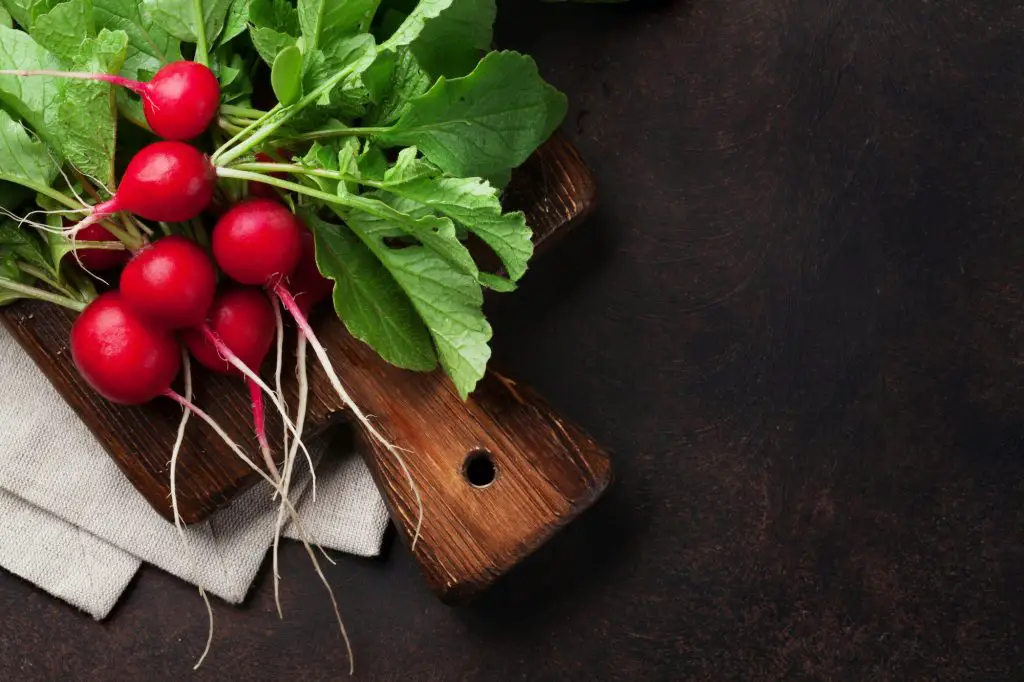
Radish is a root vegetable that can be eaten raw or added to different dishes. Rash mature fast and are very easy to grow. Although a full sun vegetable, Radish can do well in partial sun, however, you may experience a slower growth rate, this is because the level of the sun influences the soil temperature that nourishes the Radish, when there is less sun, the growth rate automatically reduces.
8. Chives
This is a vegetable with an onion-like flavour, they are also closely related to onion, leeks, and garlic. They are low in calories and possess vitamins, minerals, and antioxidants. They are also used for various medicinal purposes. Chives grow well in both full sun and partial sun. They are easy to grow and can be grown in a container they are not known to be attacked by pests and they require a moderate amount of water to grow properly.
9. Mint
Mint is one vegetable, known for culinary and medicinal purposes, although they grow best in full sun, they also thrive in partial sun, they are known to be pest repellant, this means that they can protect other vegetables in your garden from pests. They are known to spread around the garden fast. They grow best in well-drained but moist soil.
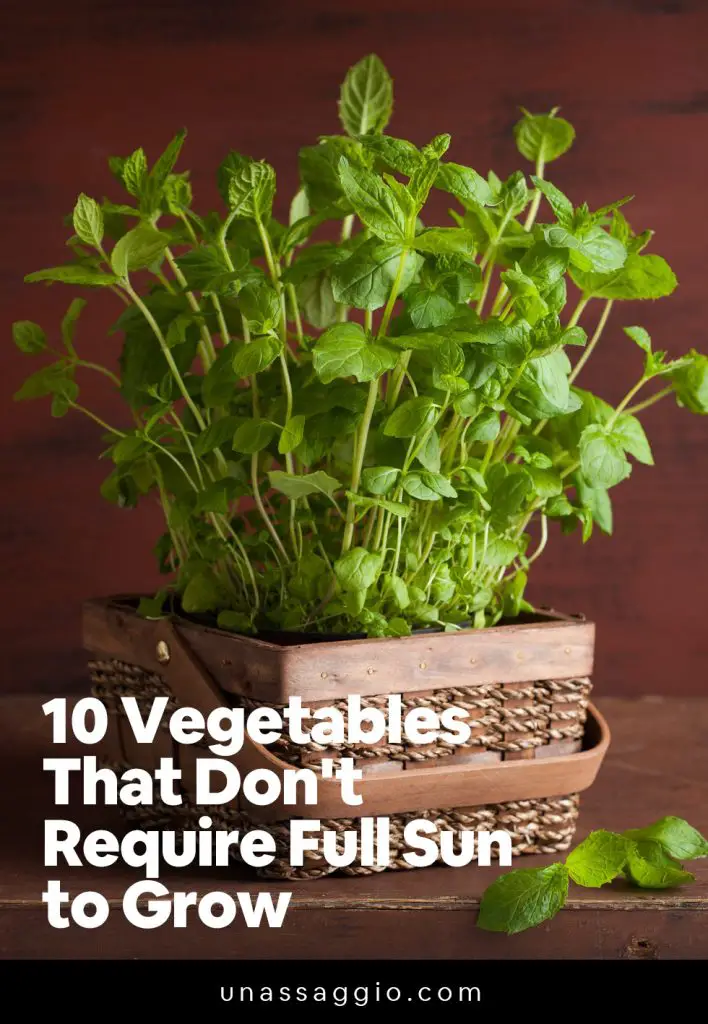
10. Sorrel
Sorrel is known by some as a vegetable and to others as a herb. Either way, it is a perennial plant with a lemon kind flavour, it is used for different dishes. Sorrel is a full sun plant, although, with a slower growth rate, it thrives well in the partial sun too. It grows best in rich, well-drained soil.
Conclusion
Most vegetables require full sun however they are also vegetables that thrive better in partial sun. A good number of vegetables will grow well and produce nicely with three to six hours of sunlight per day but keep in mind that no vegetable can thrive in deep dense dark shade.

